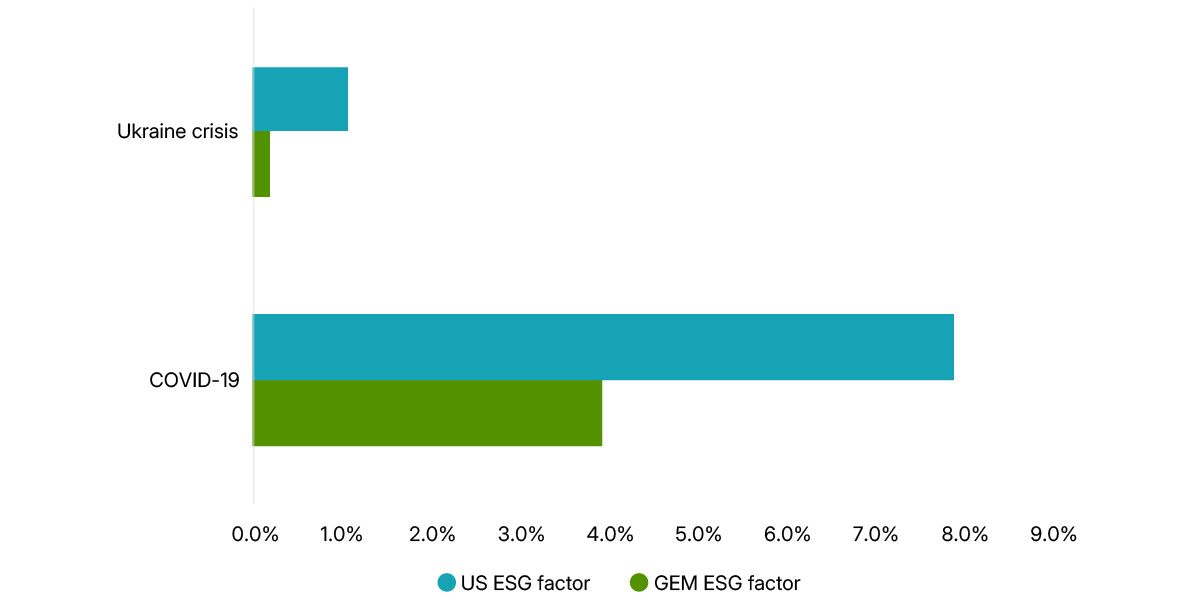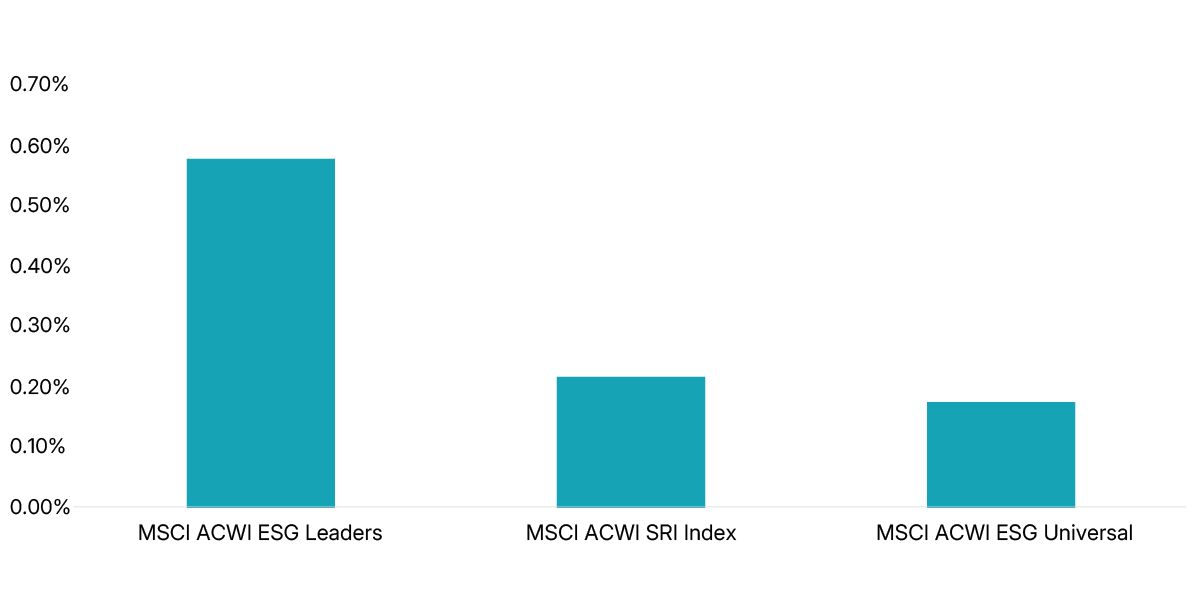Crisis-Tested: When Markets Fold, Sustainability Holds
Time and time again we have seen that companies with more sustainable practices — especially those grounded in sound governance — don't just survive systemic sell-offs; they have outperformed. Whether it's the COVID-19 crash, the Russia-Ukraine war or the latest tariff-driven turmoil with moves of a magnitude last seen during the 2020 COVID-19 crisis, companies that prioritized sustainability consistently demonstrated greater resilience.
We looked at how much of a company's return could be explained by sustainability, correcting for all other commonly used factors such as size, region or style, using the ESG factor in the MSCI Barra factor-attribution model. Early signs suggest that sustainability is again proving resilient during the current market sell-off — from April 1 to April 8, 2025, MSCI ESG Indexes have outperformed.
Our long-term research confirms that companies with higher MSCI ESG Ratings are associated with lower earnings variability and reduced residual CAPM volatility. Additionally, companies with the highest ratings have historically had fewer instances of catastrophic drawdowns (50% or more), supporting the view that sustainable practices are financially prudent.
As global markets experience the market turbulence and economic uncertainty posed by rapidly changing tariff and trade policies, sustainability grounded in sound governance may offer investors valuable protection against downside risks.
Resilience of ESG factor returns in times of crisis

The chart shows the MSCI Barra Equity Model ESG factor returns (annualized in %). The ESG factor return represents the performance of companies with higher ESG scores relative to those with lower ESG scores, after controlling not only for well-known systematic sources of return — such as size, volatility, industry or country membership — but also for numerous other potential factors. Ukraine crisis refers to period from Feb. 23, 2022, to May 31, 2022; COVID-19 refers to period from Dec. 31, 2019, to April 30, 2020. Source: MSCI ESG Research
MSCI ESG Indexes have held up relatively well during the market sell-off

Data from April 1, 2025, to April 8, 2025. Chart shows the cumulative active return of select MSCI ESG Indexes relative to the MSCI ACWI Index. Source: MSCI ESG Research
Subscribe todayto have insights delivered to your inbox.
Which Sustainability Issues Mattered Most?
Sustainability data can signal stock-market torpedoes — or long-term winners. Our research reveals the key environmental, social and governance indicators that helped investors avoid sharp drawdowns and capture outperformance.
MSCI ESG Ratings in Global Equity Markets: A Long-Term Performance Review
Controlling for sectors, regions and company size, we assessed the financial performance of MSCI ESG Ratings in global and developed markets and found that companies with higher ratings outperformed their lower-rated counterparts over the long term.
The content of this page is for informational purposes only and is intended for institutional professionals with the analytical resources and tools necessary to interpret any performance information. Nothing herein is intended to recommend any product, tool or service. For all references to laws, rules or regulations, please note that the information is provided “as is” and does not constitute legal advice or any binding interpretation. Any approach to comply with regulatory or policy initiatives should be discussed with your own legal counsel and/or the relevant competent authority, as needed.

